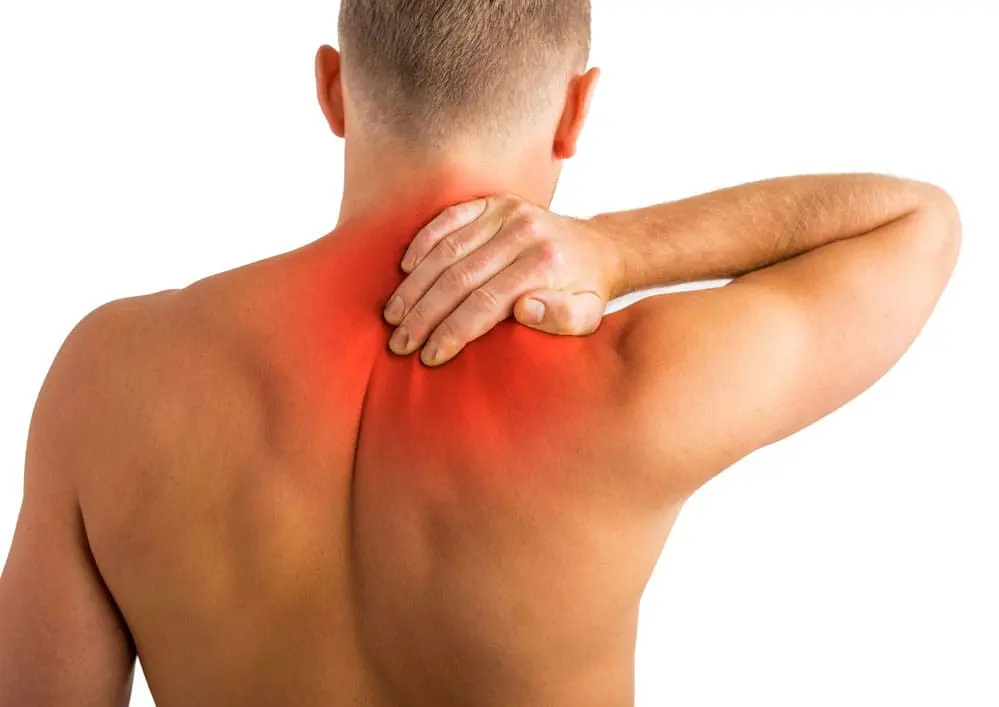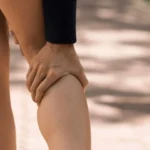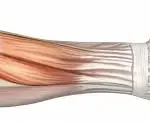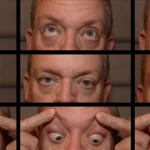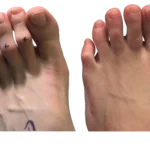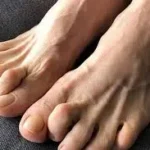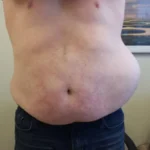Overview
The dorsal scapular nerve is a small yet crucial branch of the brachial plexus that primarily arises from the C5 spinal nerve root. Its main function is to innervate the levator scapulae and rhomboid major and minor muscles, which are essential for stabilizing and retracting the scapula against the thoracic wall. When this nerve becomes damaged, compressed, or stretched, it leads to what is known as a Dorsal Scapular Nerve Injury.
A Dorsal Scapular Nerve Injury can cause pain, weakness, or visible deformities in the shoulder blade region. Patients often report difficulty maintaining proper shoulder posture, especially during activities like lifting, pulling, or overhead reaching. Though relatively rare compared to other peripheral nerve injuries, this condition can significantly impact shoulder stability and function, especially in athletes and individuals involved in repetitive upper limb activities.
At DMPhysios, a leading physiotherapy clinic in Noida specializing in spine and sports conditions, clinicians emphasize the early identification and customized rehabilitation of Dorsal Scapular Nerve Injury to restore optimal scapular mechanics and prevent secondary complications.
Symptoms
The clinical presentation of Dorsal Scapular Nerve Injury depends on the extent of nerve damage and associated muscular dysfunction. Common symptoms include:
- Medial Scapular Pain – A dull or sharp ache along the inner border of the scapula, often radiating toward the neck or shoulder.
- Scapular Winging – Mild winging of the scapula due to weakness of the rhomboid muscles, visible during arm elevation or push movements.
- Shoulder Weakness – Difficulty in retracting or elevating the scapula, making it hard to perform pulling or rowing actions.
- Postural Changes – Drooping or asymmetry in shoulder height due to loss of scapular control.
- Neck Stiffness or Discomfort – As compensatory muscles like the upper trapezius become overactive.
- Reduced Range of Motion – Particularly during shoulder elevation or abduction.
- Fatigue with Overhead Activity – Tasks like lifting objects, swimming, or throwing become uncomfortable or tiring.
Patients often confuse Dorsal Scapular Nerve Injury with shoulder impingement or cervical radiculopathy, but precise assessment by professionals like those at DMPhysios, Noida can help differentiate and provide targeted care.
Types of Dorsal Scapular Nerve Injury
While not formally categorized into specific clinical types, Dorsal Scapular Nerve Injury can be described based on the nature and mechanism of damage:
- Compression Injury – Caused by entrapment of the nerve as it passes through the middle scalene muscle. Common in individuals with poor neck posture or repetitive shoulder activities.
- Traction Injury – Results from overstretching during sudden shoulder movements or high-velocity trauma, such as whiplash or sports injuries.
- Direct Trauma – Occurs due to a direct blow to the neck or upper back region.
- Postural/Chronic Overuse Injury – Seen in people with prolonged sitting, forward-head posture, or repetitive pulling movements that strain the scapular stabilizers.
Understanding the underlying mechanism helps the physiotherapy team at DMPhysios design individualized treatment plans that target both the symptoms and root cause of Dorsal Scapular Nerve Injury.
Causes
A variety of mechanical, postural, and pathological factors can contribute to Dorsal Scapular Nerve Injury. Common causes include:
- Poor Posture – Chronic forward head or rounded shoulder posture compresses the nerve in the scalene muscles.
- Muscle Hypertrophy or Spasm – Tightness or hypertrophy of the scalene muscles can entrap the dorsal scapular nerve.
- Repetitive Overhead Movements – Seen in athletes like swimmers, weightlifters, and badminton players.
- Neck or Shoulder Trauma – Sudden jerking or impact can stretch or injure the nerve.
- Cervical Spine Disorders – Disc herniation, foraminal narrowing, or spondylosis may irritate the C5 nerve root.
- Iatrogenic Causes – Rarely, surgical procedures near the neck or shoulder can inadvertently affect the dorsal scapular nerve.
The DMPhysios team in Noida carefully evaluates these contributing factors through postural assessment, manual palpation, and movement analysis to confirm the diagnosis and rule out other conditions.
Risk Factors
Certain individuals are more susceptible to Dorsal Scapular Nerve Injury due to occupational, anatomical, or lifestyle factors:
- Athletes involved in swimming, tennis, rowing, or weightlifting.
- Desk workers with prolonged static postures and forward head alignment.
- Manual laborers engaging in repetitive lifting or pulling.
- Individuals with cervical spine disorders or muscular imbalances.
- Poor ergonomic setup at workstations or during exercise.
- Previous neck or shoulder injuries that compromise movement patterns.
At DMPhysios, prevention and correction of these risk factors are integral to rehabilitation, ensuring long-term shoulder health and improved functional performance.
Treatment
Management of Dorsal Scapular Nerve Injury depends on the severity and duration of symptoms. The primary goals are to relieve pain, restore scapular stability, and re-educate proper neuromuscular control.
1. Medical Management
- Rest and Activity Modification: Avoiding aggravating movements that strain the shoulder and neck.
- Anti-inflammatory Medication: Prescribed by physicians to reduce nerve irritation.
- Pain Relief Modalities: Ice therapy or heat packs may be used in early stages.
- Injections (if necessary): Corticosteroid or local anesthetic injections may be considered for severe inflammation or nerve entrapment.
However, medications alone do not address the underlying biomechanical dysfunction. Therefore, comprehensive physiotherapy treatment, like that offered at DMPhysios in Noida is essential for full recovery.
Physiotherapy Treatment
Physiotherapy plays the most crucial role in managing Dorsal Scapular Nerve Injury. The focus is on relieving compression, strengthening weak muscles, correcting posture, and restoring normal scapular rhythm.
At DMPhysios, the physiotherapy approach is patient-centered, combining evidence-based techniques with personalized rehabilitation.
1. Pain Management and Soft Tissue Release
- Manual Therapy: Gentle mobilization of the cervical spine and scapulothoracic joint helps improve motion and reduce stiffness.
- Soft Tissue Release: Myofascial release of the scalene, levator scapulae, and upper trapezius reduces tension around the nerve.
- Dry Needling or Cupping (if indicated): To alleviate myofascial trigger points that contribute to nerve compression.
2. Postural Correction
- Posture Training: Patients are taught neutral neck alignment and scapular setting techniques.
- Ergonomic Education: Guidance on workstation setup, especially for office workers.
- Mirror Feedback: Used to visually retrain correct shoulder blade positioning.
3. Scapular Strengthening Exercises
Gradual strengthening is vital to restore stability. Exercises typically progress as follows:
- Early Stage (Isometric Activation):
- Scapular retraction holds
- Shoulder blade squeezes against resistance band
- Gentle scapular elevation and depression control drills
- Intermediate Stage:
- Prone Rows and Prone T-Y-I exercises for rhomboid and middle trapezius activation
- Theraband Scapular Retraction exercises
- Wall Slides with Scapular Control
- Advanced Stage:
- Functional movements like push-up plus, resisted rows, and overhead stability drills
- Dynamic scapular stabilizer training during sport-specific tasks
At DMPhysios, these exercises are supervised carefully to ensure proper muscle engagement without compensatory neck movement.
4. Neural Mobilization
If the nerve is entrapped or adherent, nerve gliding exercises can be prescribed to improve mobility of the dorsal scapular nerve through its pathway, reducing symptoms and promoting recovery.
5. Electrotherapy Modalities
- TENS (Transcutaneous Electrical Nerve Stimulation): Used for pain modulation.
- Ultrasound Therapy: Helps decrease inflammation and promote tissue healing.
- Accelerated Healing Therapy: May assist in reducing chronic muscle tightness around the neck.
6. Functional and Sport-Specific Rehabilitation
Once pain and weakness are controlled, rehabilitation focuses on restoring full upper limb function:
- Plyometric drills for athletes
- Postural endurance exercises
- Integration of scapular control into full-body movements like squats, planks, and push-ups
The rehabilitation specialists at DMPhysios, Noida ensure a progressive, goal-oriented recovery plan, tailoring exercise intensity according to the patient’s condition and activity level.
Prevention
Prevention focuses on maintaining healthy posture, balanced muscle strength, and optimal movement mechanics. Here are some key recommendations from the DMPhysios expert team:
- Correct Posture: Keep your neck aligned and shoulders retracted during daily activities.
- Regular Stretching: Stretch tight muscles like the upper trapezius and scalene to avoid nerve compression.
- Strengthen Scapular Stabilizers: Regularly perform exercises for rhomboids and lower trapezius.
- Warm-Up Before Exercise: Always include mobility and activation drills before heavy workouts or sports.
- Ergonomic Adjustments: Set your desk, chair, and screen at appropriate levels to prevent neck strain.
- Avoid Prolonged Static Posture: Take short breaks to move and stretch during long sitting hours.
Implementing these measures not only reduces the risk of Dorsal Scapular Nerve Injury but also improves overall shoulder and spine health, something that the specialists at DMPhysios, Noida continually emphasize during every rehabilitation session.
Conclusion
A Dorsal Scapular Nerve Injury might be rare, but its impact on shoulder stability and daily activities can be profound if left untreated. Early recognition of symptoms like scapular pain, weakness, or mild winging is essential for timely intervention. Comprehensive rehabilitation, focused on posture correction, soft tissue release, and scapular strengthening, forms the cornerstone of recovery.
At DMPhysios, a renowned Noida-based physiotherapy clinic specializing in spine and sports conditions, patients receive patient-centered rehabilitation for conditions like Dorsal Scapular Nerve Injury through evidence-based care, personalized exercise programs, and advanced physiotherapy techniques. Their holistic approach ensures not just recovery but prevention of recurrence and long-term functional improvement.
If you’re experiencing persistent shoulder blade pain, postural imbalance, or weakness, don’t ignore the warning signs. Reach out to DMPhysios today for expert assessment and customized treatment for Dorsal Scapular Nerve Injury and take your first step towards a stronger, pain-free shoulder.

